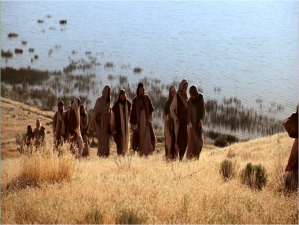Judge not, and you will not be judged; condemn not, and you will not be condemned; forgive, and you will be forgiven; give, and it will be given to you . . . (Luke 6:37-42)
The most-quoted passage of scripture is not John 3:16 or Genesis 1:1. It’s this right here: Judge not. Smug unbelievers hurl it frequently against smug believers, typically with scraps of tacked on theology like, Who are you to speak for God and You’re not acting very Christ-like are you? What would Jesus do, you hypocrite? In other words, judging. We all judge. We all have some sense of moral hierarchy, and the real question is not, Who are you to speak for God? but Who is God to speak to me? The point here is not that we can’t make any judgments about anything ever, because we do that practically every time we open our mouths. However screwed up our morals may be, we are still moral creatures.
The point is, Where does the judging start? If my judging doesn’t start with judging me—always—I’m in danger of making myself the judge. 
To understand Judge not, we must take the Jesus’s previous words in one hand and his subsequent words in the other. “Children of the Most High” who are “merciful as their Father is merciful” (vs. 36) will not reassure fellow sinners that their sins are okay with the Big Guy. They will not tie blindfolds over their eyes and proceed to lead the blind (vs. 39). If the Lord has opened your eyes, what do you see? You see Him and his commands—and most acutely, you see how you’ve broken them every day of your life, both carelessly and willfully. You see how he’s held on to you while you were pulling away from him. You see how his mercy reeled you in, whether little by little or all in a rush. When tears of remorse have washed all the crud out of your eyes, you can see how that friend or relative or fortuitous stranger is making the same dumb assumptions you once did.
What would Jesus do? He would pay for all those dumb assumptions and willful flaunting and innumerable offenses, because somebody had to. Judge not doesn’t mean there’s no judging going on, only that we’re not the ones who pronounce sentence. Someone does, someone will, and someone pays. See to it that it isn’t you.
For the first post in this series, go here.
Next>



